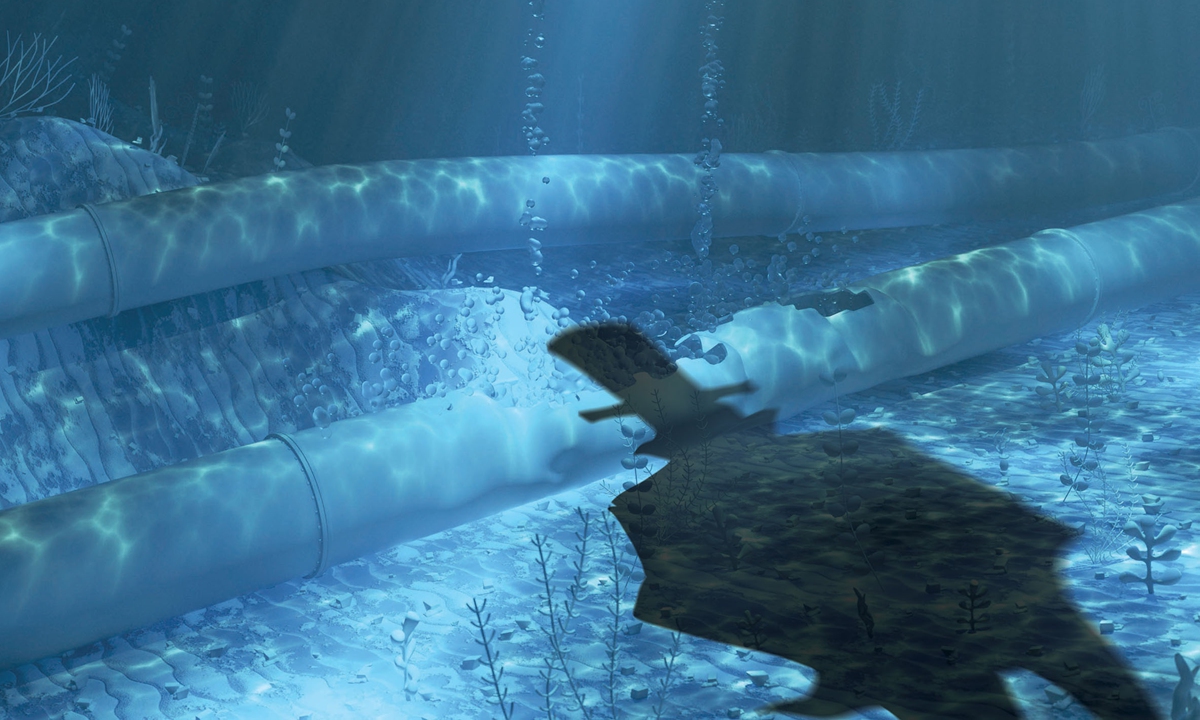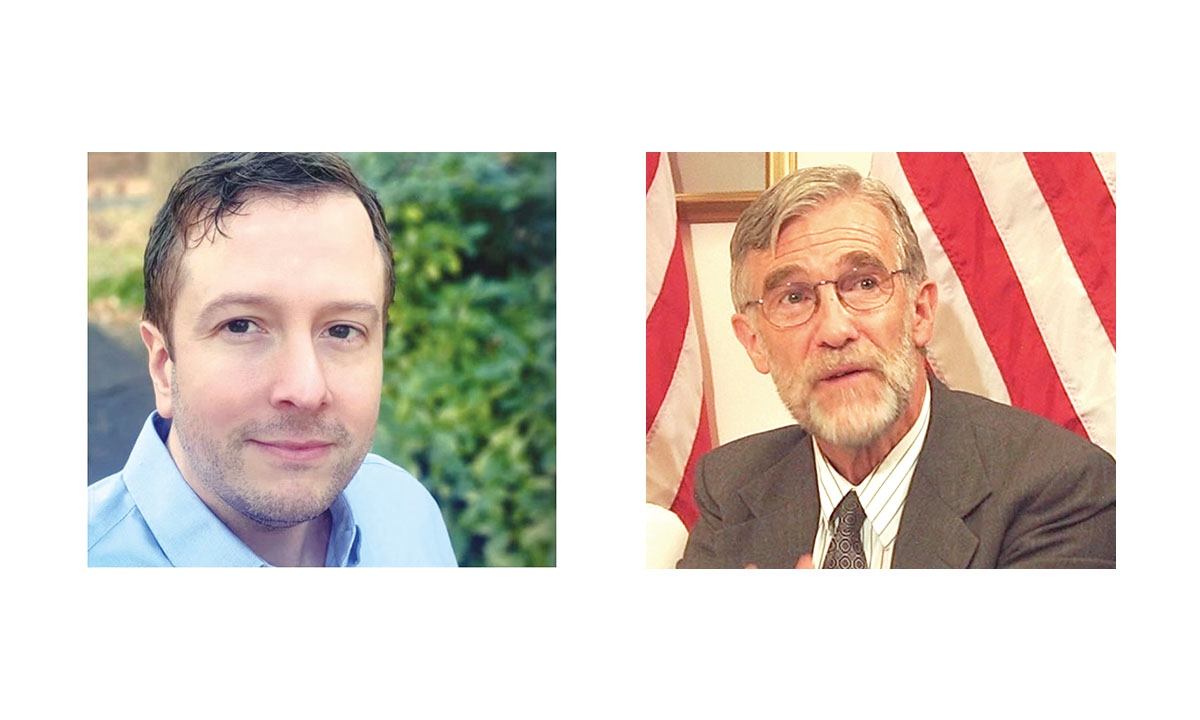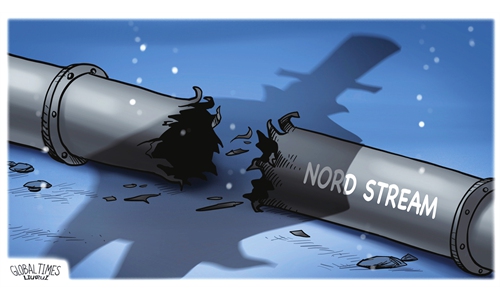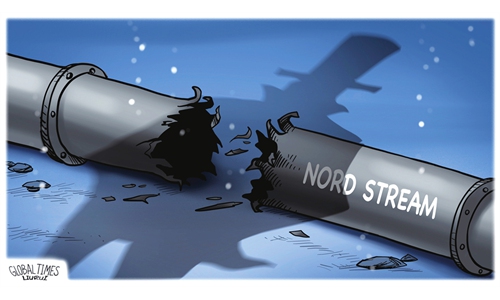
Photo: VCG
After US investigative journalist Seymour Hersh revealed that the US is the mastermind behind the Nord Stream pipeline explosion, the New York Times (NYT) published an article that pushed a different narrative, claiming that a "pro-Ukrainian group" carried out the attack. Why did the mainstream media in the US largely remain silent on Hersh's article? Are the NYT revelations credible? Who is the culprit for the Nord Stream pipeline attack? Former CIA analyst Ray McGovern (McGovern) and Aaron Good (Good), a US historian and political scientist who runs the "American Exception" podcast, discussed these issues with the Global Times (GT).
GT: What do you think of the NYT article? Compared to Hersh's report, which one has more credibility?
McGovern: The NYT article is an attempt to deflect attention from what every sensible human being that concludes it was a US authorship of this sabotage. It makes no sense. It took the intelligence community whispering into the NYT's ear a whole month to come up with what is a comical effort to blame someone else.
Now, I won't go into the details, but it's physically impossible for the incident to have occurred the way CIA and other intelligence officials are telling the NYT. It is what the British call - rubbish. It doesn't stand close scrutiny.
On the other side of things, you have not only the most authoritative, the most trusted, the most respected journalist in America, Seymour Hersh, who has been very good at telling true stories, however, embarrassing as it may be to our government, and who protects his sources quite well. He says, in a very detailed rendition of what happened, that the US was behind the attack and was helped by Norway.
Besides that, we have the typical indexes that you look for. You're researching a crime and trying to find out who did it, who had the motive. The motive was clear: The US has been expressing astonishment that the Germans and the Russians would get this close together, and that had to be stopped. US officials said it had to be stopped, and guess what? President Biden, according to Seymour Hersh, approved the stopping of it.
Not only President Biden, but after the pipelines were blown up, all kinds of people couldn't hold it in, and they were so proud of being able to put an end to the pipelines. Undersecretary of State Victoria Nuland bragged: "I am, and I think the administration is, very gratified to know that Nord Stream 2 is now, as you like to say, a hunk of metal at the bottom of the sea." Secretary of State Antony Blinken called it a "tremendous opportunity to once and for all remove the dependence on Russian energy."
So you have ability, you have incentive, you have people pretty [much] admitting what they did, then people rejoicing over it. That's enough for me.
Good: I do not personally believe it's likely that a group of Ukrainian freelancers bombed the Nord Stream, since it seems too convenient and hard to imagine that they would have the technical capabilities to independently organize such a difficult operation. I say "difficult" because the Nord Stream pipelines are very sturdy and under the sea. Also recall that Joe Biden said, "If Russia invades [Ukraine] there will be no longer a Nord Stream 2. We will bring an end to it... I promise you, we will be able to do it."
While I don't find the NYT story persuasive, it could be a useful lie to help prevent this conflict from spiraling into a nuclear war. Ridiculous as the Ukrainians-did-it story is, maybe it can be part of the way that the US disengages from Ukraine.
I believe that Hersh's story is much more plausible that US military assets carried out the operation. But, there are other things to keep in mind. Ukrainian citizens' involvement does not preclude Ukrainian state backing, or even the backing of other states like the UK or the US behind them. I have a hard time believing that high-level US officials would fabricate such a story and leak it to the one reporter with the profile to publish it in a way that couldn't be ignored. If anyone doubts that Hersh was the best person to leak the story to, consider the way the establishment press in the US ignored Hersh's story for as long as it could.
We have to consider why anyone would leak this story to Hersh. The obvious motive of the leakers would seem to be a desire to change the narrative of the war as Ukrainian losses create pressure for the US to intervene more directly. Further US involvement would be full of catastrophic potential - up to and including the nuclear destruction of human civilization. Hersh's story of the US attacking the Russian-German Nord Stream pipeline threatened to destroy the US-German alliance, a major pillar of US hegemony since the end of World War II. This would have meant more than just an end to the NATO coalition behind Ukraine. Apparently, this prospect led to the new story of Ukrainian authorship of the bombing.

Photo: Aaron Good (left) and Ray McGovern (right) Photos: Courtesy of Good and McGovern
GT: The US mainstream media, which initially had vehemently called for an investigation into the sabotage, became largely silent after Hersh released his investigative report. Why did this happen?McGovern: The Hersh article was too embarrassing [for the US]. It took the NYT one month to figure out how to react. They didn't mention Hersh's article till way down the 26th paragraph, if I recall correctly.
So why did everyone keep silent? No.1, because it was a Substack thing, and they could just kind of suppress it. And No.2, it's too hot to handle. No.3, Hersh has an incredible reputation. They just didn't know what to do, and so their default reaction is to see no evil, hear no evil, speak no evil.
Aside from its stupidity and absurdity, the NYT article names the Ukrainian - unofficial Ukrainians. But if this turns out to be official Ukrainians, support for Ukraine is going to dissipate in Europe and elsewhere. So that's sort of a thing we pay attention to. It's very unusual that the NYT propounds this kind of thing and blames Ukraine. We'll see what happens in the coming weeks.
Good: Given the questions of "means, motive, and opportunity," as well as US officials' blunt threats about the pipelines before the bombing, the US was already the top suspect in the bombing. Hersh has a long history of cultivating high-level government sources who leak information to him in order to avoid being fired or imprisoned under the extremely repressive and unconstitutional Espionage Act. The media's silence on this issue points to a repressive and totalizing system of top-down social and political dominance. Media censorship is an important part of this system of top-down governance.
GT: Will the US be the biggest obstacle to investigating the Nord Stream incident?
McGovern: The US already has been. Of course, it will. If you're the perpetrator of a crime - which I think it's very clear in this case, the US is - you do your best to deflect attention from it and make sure that it is not investigated properly. That's just common sense; it's common usage among criminals.



